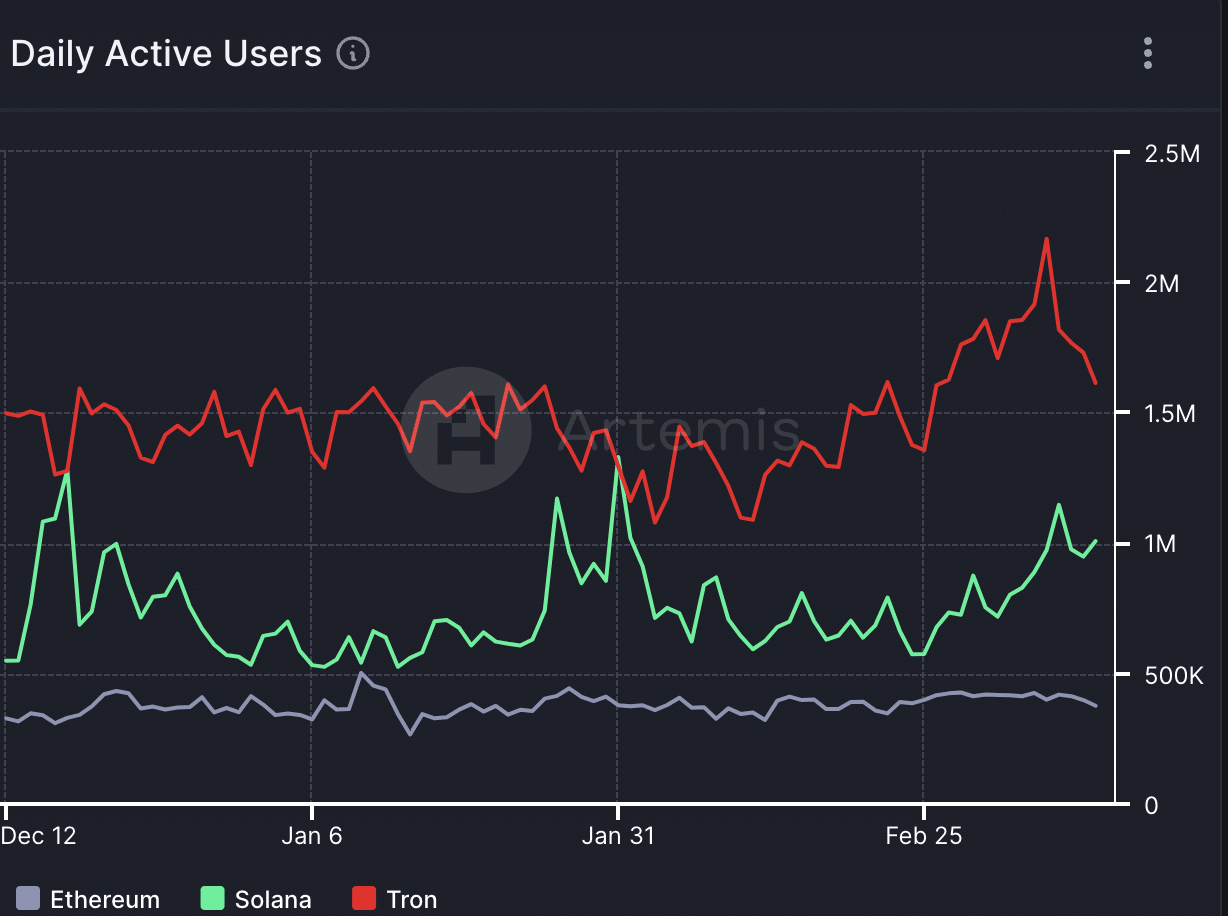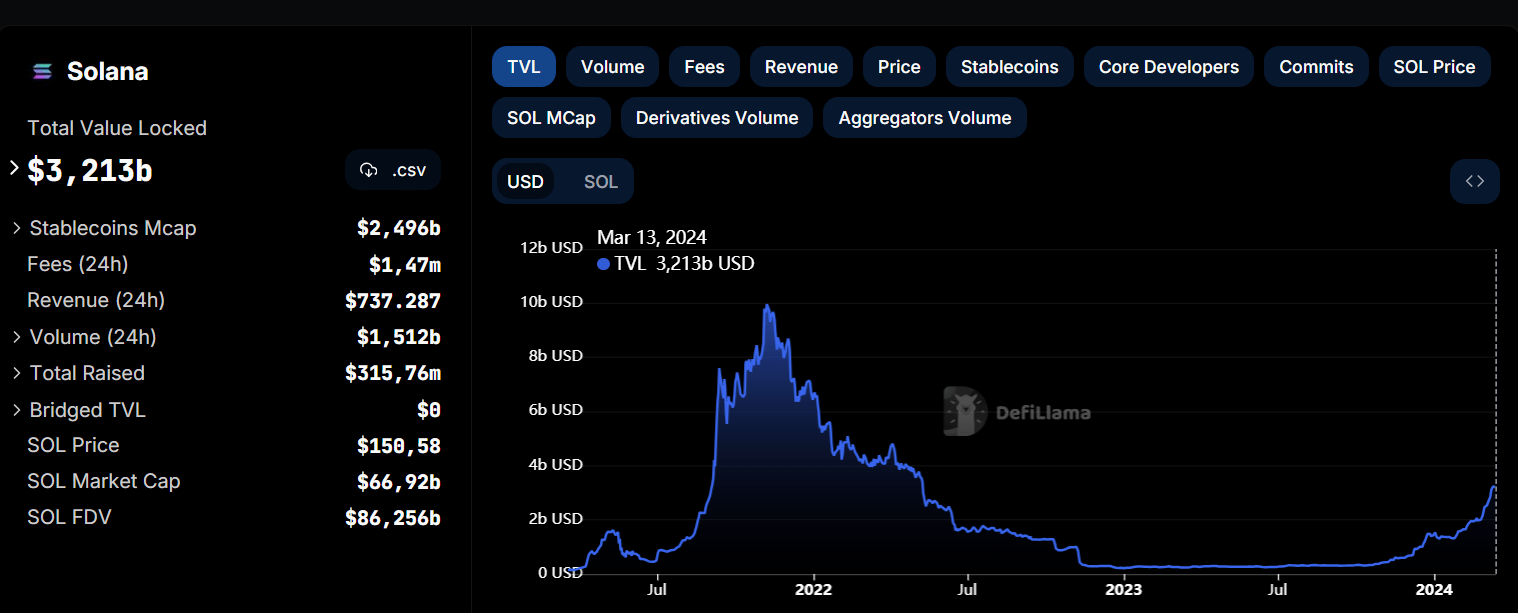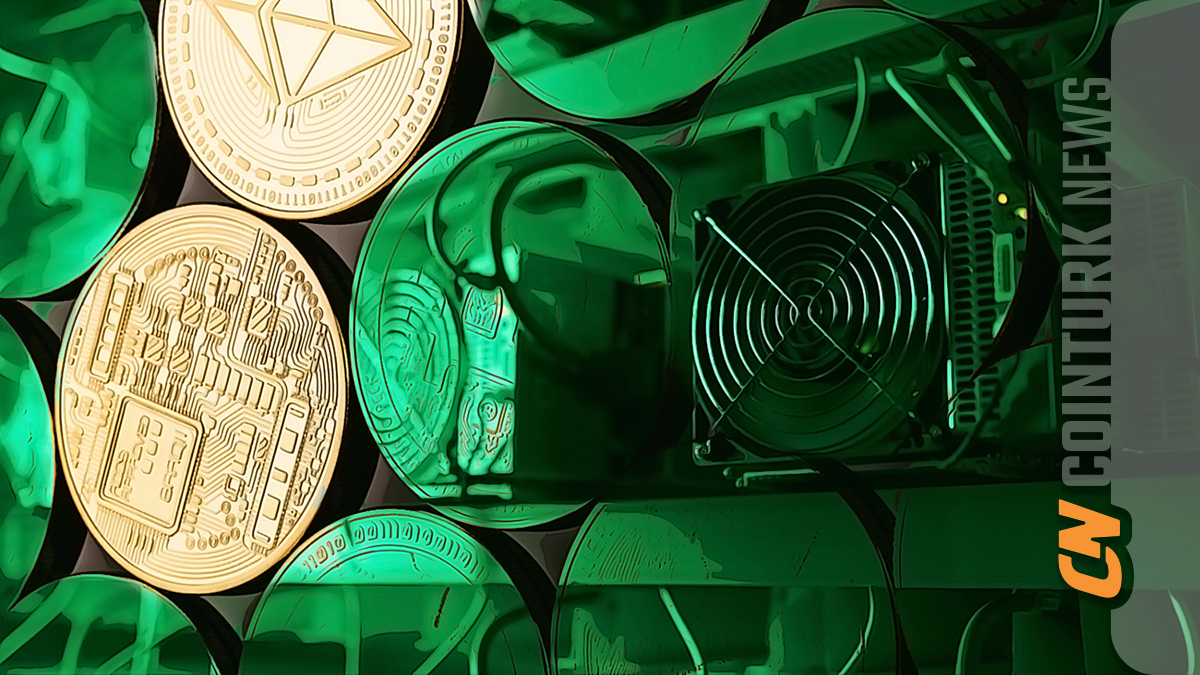One of the largest smart contract platforms by market value, Solana (SOL), is attracting interest with its speed and low transaction fees. Its price, which impressively increased in 2021, had fallen to around $8.5 in the last month’s market. Now it is targeting $200 again. So, can it catch up with Ethereum?
Solana and Ethereum
Ethereum, known as the computer of the internet, is now the most powerful player in the multi-chain world. Solutions like Arbitrum and Starknet will play a significant role in the future of the Ethereum network. The Ethereum Dencun upgrade, happening in a few hours, will reduce transaction fees for these layer2 solutions by 90%.
What’s the latest from the Solana front? According to recent data, Solana has become the leading blockchain in payment volumes over the last six months, surpassing its competitors. During this period, Solana recorded transactions worth $1.7 trillion, leaving behind Ethereum with $1.1 trillion and Tron with $869 billion.

The increasing liquidity in the Solana network is also boosting the activity of DeFi protocols, making the network more attractive. Yesterday, we mentioned a new record in monthly transactions, and the daily active users have surpassed 800,000, reaching a new ATH level.

Can Solana Overtake Ethereum?
Although Solana performs better than Ethereum in some metrics, it is still far behind Ethereum in terms of total value locked (TVL). In the NFT sector, while Solana is growing, it has not seen the same level of growth in sales volume.

Even though it is faster and cheaper than Ethereum, the user profile in the Solana ecosystem creates less value compared to its competitor. Moreover, the intense interest in Ethereum layer2 solutions is contributing to the main network’s further growth. Considering all these factors, it seems unlikely that Solana will catch up to Ethereum in terms of value in the medium term.
Especially after the Dencun update, we should observe how the user growth in Ethereum layer2 solutions over the next month affects layer1 initiatives. If transaction fees in networks like Arbitrum become satisfactorily relaxed, we might witness users from networks like Solana and Avalanche moving over.

 Türkçe
Türkçe Español
Español









